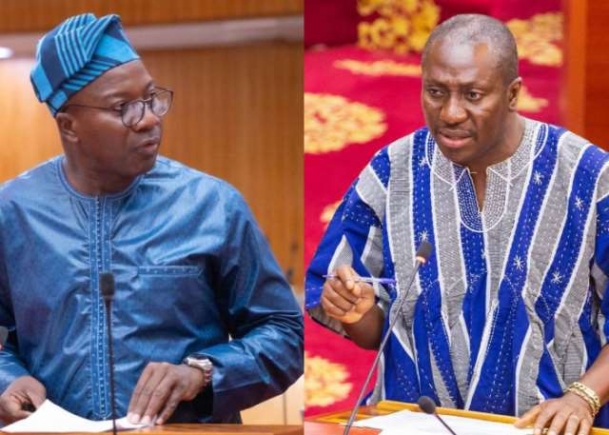The leadership of Parliament in Ghana has proposed that the Hansard, which is a verbatim report of debates in Parliament should be made available online.
This, according to them, this will help fight misinformation and fake news, which is on the ascendency.
They want the Hansard to be infused with artificial intelligence and other digital tools to make it more accessible in the digiral space.
This, according to them, will improve public engagement with parliamentary work, strengthen accountability, and protect the integrity of official records.
Speaking at the opening of the 11th Biennial Conference of the Commonwealth Hansard Editors Association - Africa Region in Accra on Monday, August 11, 2025, tye Majority Leader and Leader of Government Businessm Mahama Ayariga proposed the introduction of an AI-powered Hansard system that could send live alerts to ministries, agencies, and other public institutions mentioned in parliamentary debates.
Mr Ayariga explained that the system could be configured so that when an institution is mentioned in a debate, it automatically receives a notification without the Speaker having to issue a directive. This, he said, would make institutions more responsive to matters raised in Parliament.
“Even as proceedings are going on, even as debates are going on, institutions relevant to what is happening get notified so that they can be interested,” he said.
He noted that many young people “will never even read a Hansard” but could be drawn into democratic processes if Parliament’s work was connected to platforms they already use.
He proposed linking Hansard output with social media to tag or alert individuals, agencies, and groups mentioned in debates, making it easier for them to follow and respond to issues.
Mr Ayariga also said new technologies, including real-time AI transcription and Ghana’s live parliamentary television broadcasts, should be integrated into the work of the Hansard Department to ensure records match what the public hears. Discrepancies, he warned, could lead to disputes between Parliament and the public.
The Minority Leader and Member of Parliament for Effutu, Alexander Afenyo-Markin on his part also called for an urgent digital overhaul of the Hansard system to safeguard parliamentary records and make them more accessible.
Mr Afenyo-Markin described digitalisation as a “democratic imperative” and urged the adoption of AI for indexing, the integration of online archives, and the development of common standards for Hansard reporting across African legislatures.
“Hansard is more than a verbatim record. It is the institutional conscience of Parliament,” he said, adding that the official record has been used as evidence in legal disputes. He cited the Supreme Court cases of Benjamin Eyi-Mensah v Electoral Commission and Afenyo-Markin v Speaker of Parliament, where Hansard played a role in resolving constitutional issues.
He stressed that modernisation must be accompanied by capacity building. “Technology alone is not a substitute for capacity. Even as we invest in systems, we must invest equally in the people,” he said, calling for targeted training for Hansard staff and cooperation among African legislatures to improve professional skills.
The conference, held under the theme “Charting the future of Hansard: Embracing innovation and technology for enhanced parliamentary reporting in Africa”, has brought together Hansard editors, clerks, and parliamentary officials from across the continent to discuss ways of improving parliamentary reporting in the digital era.
-Graphic-





